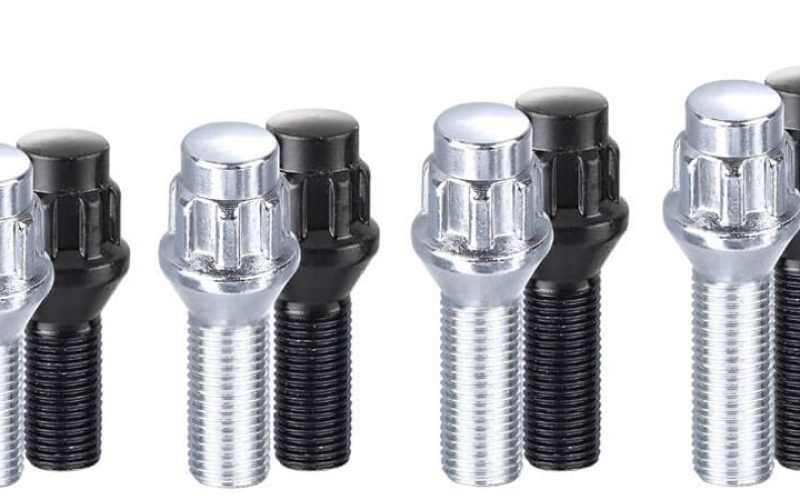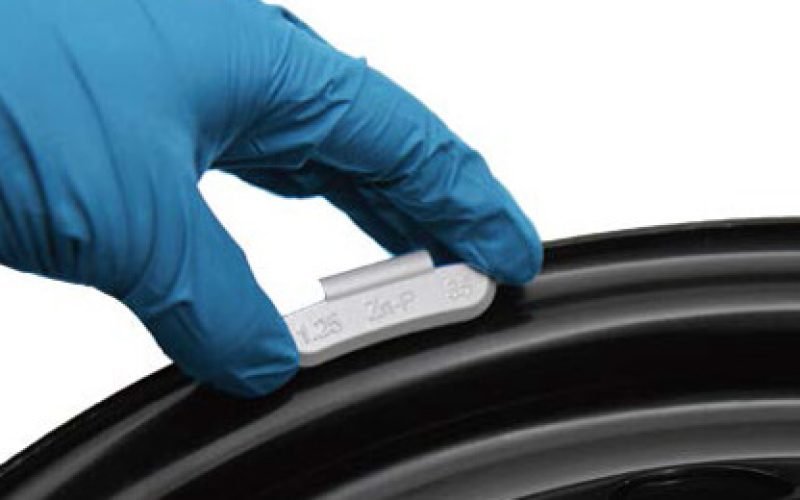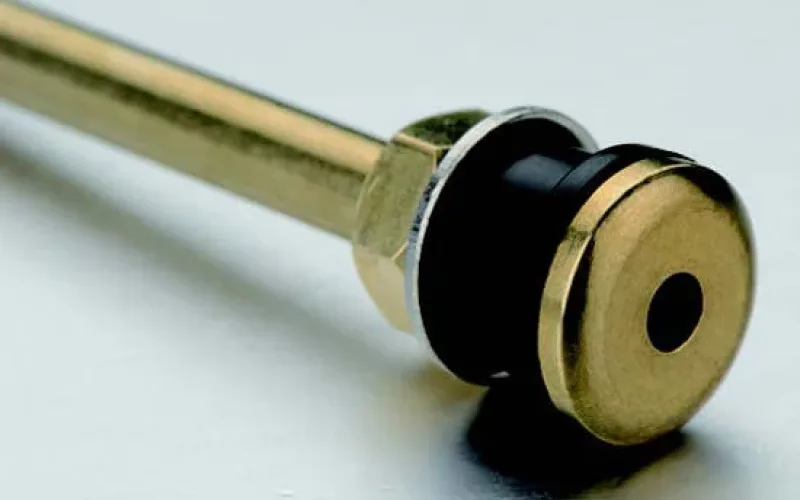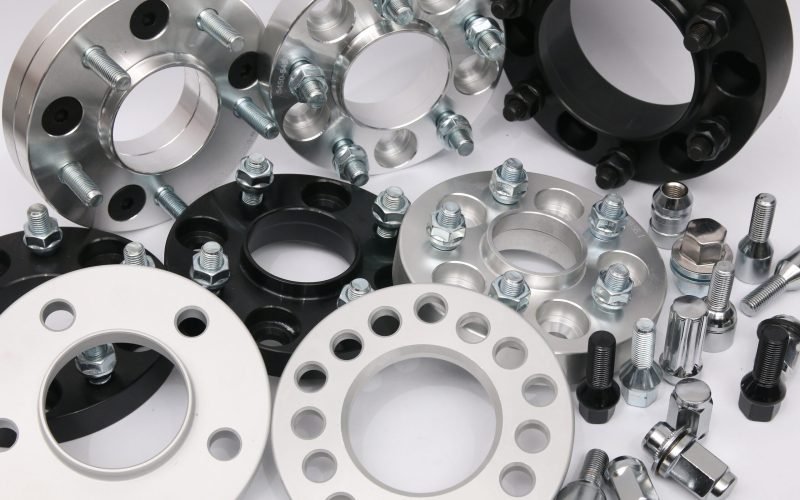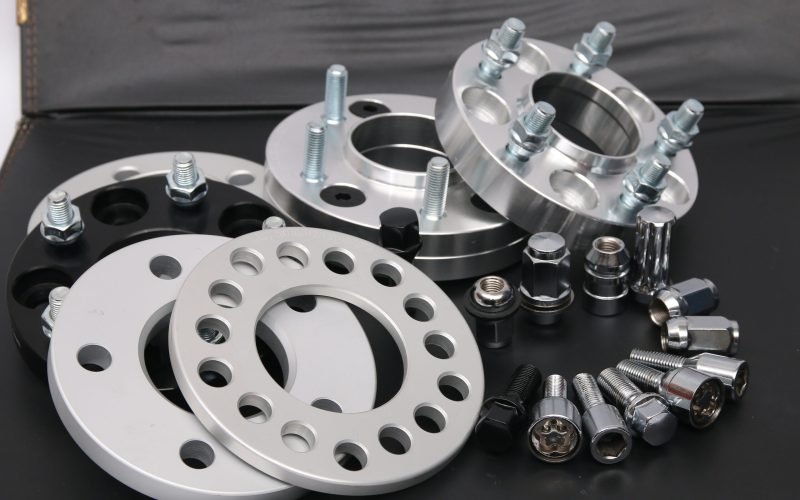

admin1
September 11, 2025
What Makes Truck Tyre Valve Stems Reliable in 2025
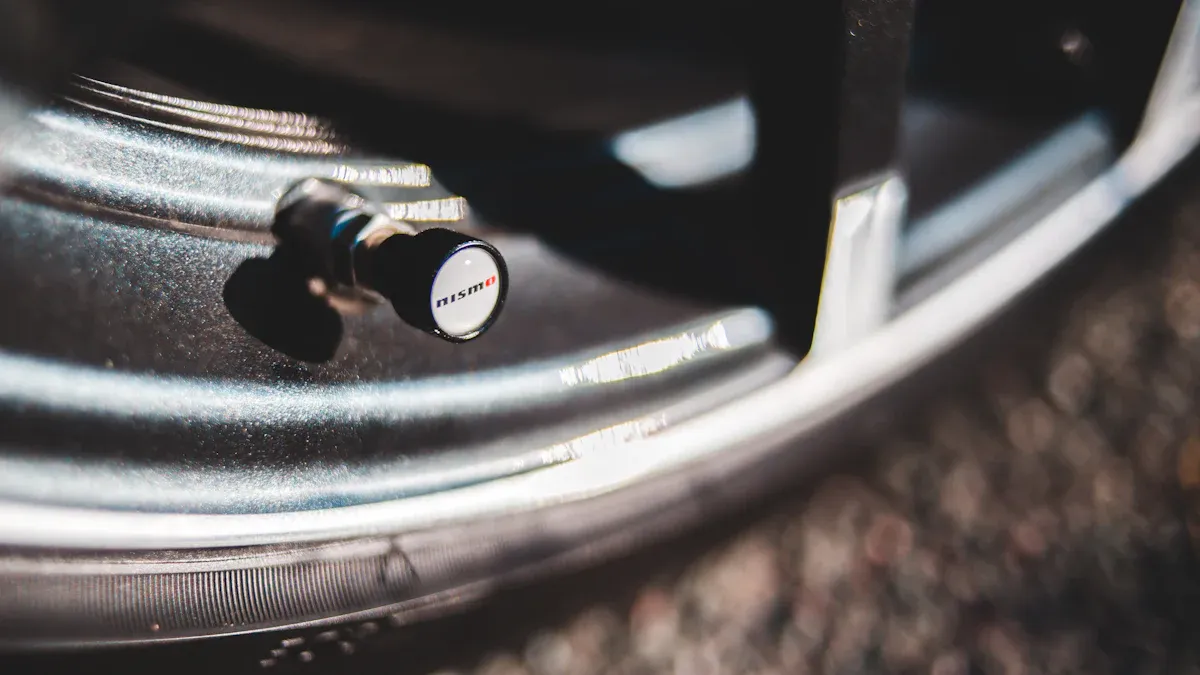
When you look at the latest truck tyre valve stems, you notice a big difference. Manufacturers use advanced materials that hold up under tough conditions. These valve stems handle higher pressures and work with smart monitoring systems. You get better safety and longer tire life.
- They resist heat, chemicals, and road debris.
- They keep air in, even on long hauls.
Investing in quality valve stems means fewer worries about blowouts or leaks on the road.
The Role of Truck Tyre Valve Stems in Safety and Performance
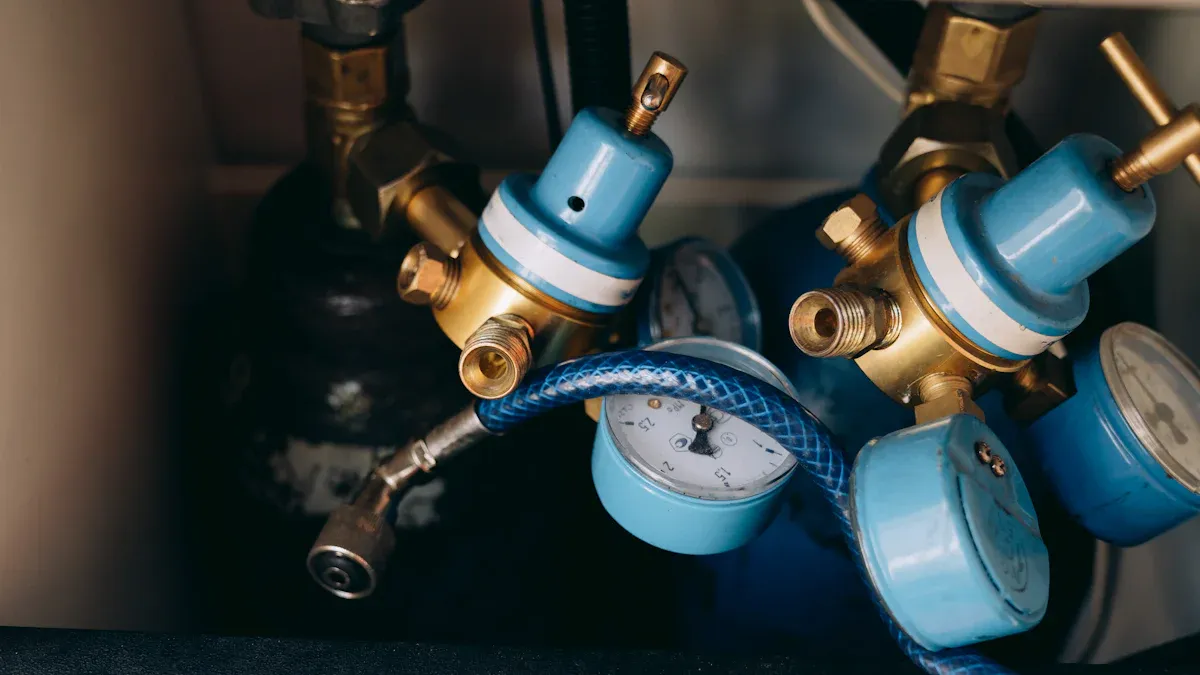
Maintaining Proper Tire Pressure
You might not think about truck tyre valve stems every day, but they play a huge part in keeping your tires at the right pressure. When you keep the correct tire inflation pressure, you help your truck run better and safer. Valve stems let you add or remove air, which keeps your tires in the best shape for the road. If your tires have the right amount of air, you get better fuel efficiency and your tires last longer.
- Underinflated tires can make your truck use more fuel. Even a small drop in pressure can lower your miles per gallon.
- A study showed that if all your truck’s tires are underinflated by just 10 psi, you could use up to 1% more fuel.
- Tire pressure monitoring systems (TPMS) can spot slow leaks from worn valve stems. This helps you fix problems before they get worse.
When you keep your tires at the right pressure, you also get better steering and stopping. Regular checks, rotations, and alignments help your tires wear evenly. This means you won’t have to replace them as often, saving you money in the long run.
Tip: Make checking your valve stems and tire pressure part of your regular maintenance routine. It’s a simple step that pays off.
Preventing Air Leaks and Blowouts
Air retention is key for safe driving. If your valve stems fail, you risk losing air and having a blowout. Many things can cause air leaks, but most start with the valve stem. If you lose the cap, dirt and debris can get inside and cause leaks. Sometimes, the valve stem gets dirty or damaged, which lets air escape. Over time, moisture, road salt, and chemicals can make the valve stem crack or corrode.
- The valve stem seals air inside your tire. If it gets brittle or cracked, you could lose air fast.
- TPMS sensors help you catch slow leaks early, so you can fix them before they turn into bigger problems.
- Keeping your valve stems clean and in good shape helps prevent sudden blowouts on the road.
When you pay attention to your valve stems, you protect your tires and your truck. You also keep yourself and others safe.
Essential Features of Reliable Truck Tyre Valve Stems
Material Quality and Construction
When you pick a tire valve stem for your truck, the material and how it’s built matter a lot. You want something that stands up to tough roads, heavy loads, and all kinds of weather. High-quality truck tyre valve stems use strong metals and special rubber that last much longer than cheaper options.
Here’s a quick look at what sets reliable stems apart:
| Feature | Description |
|---|---|
| Material and Design | 100% brass construction for top durability. Cheaper stems use yellow zinc, which doesn’t last as long. |
| High-Quality Core | Full brass core with nickel plating. This helps the stem handle high heat and keeps it working longer. |
| Long-lasting Rubber | EPDM rubber enclosure. This rubber beats natural rubber because it resists cracking and damage from the sun or chemicals. |
| Quality Control | Made to strict standards, like SAE JI205-JI206. These rules make sure the stem can handle heat and aging. |
| Specifications | Extra-wide base, 1-1/4″ length, and 80 PSI high-pressure rating. Great for many truck jobs. |
You might wonder why brass and EPDM rubber matter so much. Brass gives you strength and resists rust. EPDM rubber keeps its shape and doesn’t break down when it gets hot or wet. Some stems use only rubber or cheaper metals, but those wear out faster and can lead to leaks.
Let’s compare the most common materials:
| Material | Strengths | Weaknesses |
|---|---|---|
| Rubber | Cost-effective, easy to install | Less durable, lower pressure ratings |
| Metal | Superior durability, higher pressure ratings, better heat and ozone resistance | Can corrode over time if not treated |
You want a stem that can take a beating. Good construction means the stem can handle shocks, resist wear from rubbing, and stand up to chemicals and salt on the road. A strong stem keeps your tire sealed tight, even when you drive long distances or carry heavy loads.
Tip: Always check for high-pressure snap-in valves or high-pressure metal stems if you haul big loads or drive in tough conditions.
Pressure Rating and Load Capacity
Pressure ratings tell you how much air the valve stem can safely hold. If you use a stem with a low rating, you risk blowouts or leaks, especially when your truck is loaded or driving far. For heavy-duty trucks, you need stems that can handle high pressure and big loads.
Here’s what you should know:
- Most long-haul trucks use tires with pressure ratings up to 95 psi. Sometimes, heat and heavy loads push that number even higher.
- Some trucks, like the F-550, had problems with lower-rated stems. After recalls, many switched to all-metal clamp-in stems rated at 200 psi. These work better for heavy loads and long trips.
- If you go over the load capacity of your valve stem, you put extra stress on your tires. This can wear them out faster and make blowouts more likely.
- Too much weight on the wrong stem can also mess with your truck’s steering, braking, and stability.
Here’s a quick checklist for pressure and load:
- Check the pressure rating on your valve stem before you install it.
- Use stems that match or beat your tire’s max pressure.
- Don’t overload your truck. Too much weight can cause flats and make your tires wear out faster.
Note: Using the right valve stem keeps your tires safe and helps them last longer.
Compatibility with TPMS and Modern Systems
Modern trucks often use tire pressure monitoring systems. These systems help you keep an eye on your tire pressure and spot leaks early. Not every valve stem works with these systems, so you need to make sure yours does.
Here’s what to look for:
- Make sure your valve stem is TPMS-compatible. This lets the system give you accurate readings.
- The stem must fit the rim hole size on your truck’s wheels. If it doesn’t fit right, you could get leaks or false readings.
- Some high-pressure metal stems work better with TPMS sensors because they don’t flex or wear out as fast.
If you use the wrong stem, your TPMS might not work right. That means you could miss a slow leak or a drop in pressure, which can lead to bigger problems down the road.
Pro Tip: Always double-check that your new valve stems work with your truck’s tire pressure monitoring systems before you hit the road.
Resistance to Environmental and Road Factors
You face all kinds of weather and road conditions when you drive a truck. Your valve stems need to handle everything from freezing cold to blazing heat. If you drive through rain, snow, or mud, you know how tough the road can be on your tires and their parts.
Let’s look at what your truck tyre valve stems deal with every day:
- Hot summer days can make the air inside your tires expand. This extra heat raises the pressure and puts more stress on the valve stem. If the stem is not built for high temperature ratings, it might fail when you need it most.
- Cold winter mornings do the opposite. The air inside your tires shrinks, and the rubber in the valve stem gets stiff. This can make it harder for the stem to keep a tight seal.
- Humidity and constant wet roads speed up corrosion. Water can sneak into tiny cracks and start rusting metal parts.
- Road salt and chemicals used to melt ice can eat away at rubber and metal. Over time, this weakens the valve stem and can cause leaks.
- Bumpy roads and flying debris can hit your valve stems. If the stem is not strong, it might crack or break.
When you choose valve stems made for tough environments, you help your tires last longer and avoid sudden problems on the road.
If you want the best tire longevity, pick valve stems that stand up to all these challenges. Look for ones that have been tested for extreme weather and rough roads. You will notice fewer leaks and better performance, no matter where you drive.
Corrosion and Chemical Resistance
Corrosion is a big enemy for anything made of metal on your truck. Chemicals from the road, like salt and oil, can speed up rust and wear. If your valve stems start to corrode, they lose their strength and can let air escape.
Here’s what you need to watch out for:
- Humidity in the air can make steel parts rust faster. If you drive in wet areas, your valve stems need extra protection.
- Road salt is very harsh. It can break down both rubber and metal. Over time, this leads to cracks and leaks.
- Oil and other chemicals on the road can also attack the materials in your valve stems.
You want valve stems that resist these dangers. High-quality stems use special coatings or materials that block rust and chemical damage. Brass and nickel-plated parts work well because they do not rust easily. EPDM rubber also stands up to chemicals better than natural rubber.
Tip: Always check your valve stems for signs of rust or cracking, especially after winter or rainy seasons.
When you use valve stems with strong corrosion and chemical resistance, you protect your tires and keep your pressure ratings steady. This means safer trips and fewer stops for repairs.
Advanced Technologies in Tire Valve Stem Design for 2025
Smart Valve Stems and Digital Integration
You might notice that trucks in 2025 look smarter than ever. The reason? Many now use smart valve stems that connect directly to digital systems. These new designs help you keep track of your tires without guessing. Sensors inside the tire valve stem send real-time data to your dashboard or even your phone. You see the exact pressure and temperature for each tire, so you can spot problems before they get serious.
Here’s what these smart systems bring to your truck:
- Real-time tire pressure and temperature readings help you avoid blowouts.
- Digital alerts warn you if a tire gets too hot or loses air fast.
- Embedded sensors give you the most accurate information, so you don’t have to rely on manual checks.
- Some systems, like TireView TPMS, offer strong signal reliability and different sensor types for all kinds of fleets.
- Data from your tires goes straight to fleet management software, making it easy to plan maintenance and reduce downtime.
With these features, you save money on fuel and tires. You also spend less time on the side of the road. Smart valve stems make your job easier and safer.
Enhanced Sealing Mechanisms
Keeping air inside your tires is more important than ever. New sealing technologies in 2025 help you do just that. Manufacturers use advanced materials like brass and stainless steel to fight corrosion and wear. They also design reinforced valve stems and cores to handle high pressures and prevent leaks.
Check out some of the latest innovations:
| Innovation Type | Description |
|---|---|
| Materials | Metal valves (brass, stainless steel) last longer and resist corrosion. |
| Design | Reinforced stems and cores stand up to high pressure and stop leaks. |
| Smart Technology | TPMS valves with sensors give real-time alerts for pressure changes. |
You can also find high-pressure snap-in valves that fit tough jobs. These valves handle heavy loads and rough roads without letting air escape. When you use these new sealing mechanisms, you get peace of mind on every trip.
Ensuring Proper Fit for Truck Tyre Valve Stems
Matching Valve Stems to Tire and Truck Specifications
Getting the proper fit for your truck’s valve stems is more important than you might think. If you choose the wrong size or type, you could run into problems on the road. Every truck and tire combination has its own needs. You need to match the valve stem lengths, pressure ratings, and rim hole diameters to your specific setup.
Here’s a handy table to help you see what matters when picking the right valve stem for your truck:
| Criteria | Passenger Vehicles | Heavy-Duty Trucks | Motorcycles | Tractors and Off-Road Vehicles |
|---|---|---|---|---|
| Stem Lengths | 1.25 – 1.5 inches | 2 – 2.5 inches or more | 0.88 inches | 1.25 – 3 inches |
| Stem Angles | Straight | 45-Degree Angled | 90-Degree Angled | Straight or Angled |
| Pressure Ratings | Up to 65 psi | Up to 200 psi | Up to 65 psi | Up to 100 psi or more |
| Rim Hole Diameters | 0.453 – 0.625 inches | 0.625 inches | 0.327 inches | 0.625 inches |
| Temperature Ratings | -40°F to 180°F | -65°F to 250°F | -40°F to 180°F | Extreme conditions preferred |
If you use a valve stem that doesn’t match your truck’s needs, you might notice slow air loss, poor handling, or even increased tire wear. In the worst cases, you could face a flat tire or a blowout. Always double-check your specs before you buy or install new stems.
Tip: Check your truck’s manual or ask your parts supplier for the exact requirements. This helps you avoid costly mistakes and keeps your tires running strong.
Importance of Correct Installation
You might pick the perfect valve stem, but if you don’t install it right, you still risk trouble. Incorrect installation can damage the stem or create small air leaks. These leaks lower your tire pressure and make your truck harder to handle. You could even face a blowout if the pressure drops too much.
Here’s what can happen if you don’t install your valve stems correctly:
- The valve stem gets damaged or leaks air, causing pressure loss.
- Your truck handles poorly and the risk of blowouts goes up.
- Tires wear unevenly, which means more frequent replacements and higher costs.
Take your time during installation. Make sure the stem sits snugly in the rim and seals tight. If you’re not sure how to do it, ask a professional for help. A good installation keeps your tires safe and your truck on the road.
Maintenance and Inspection for Tire Valve Stem Reliability
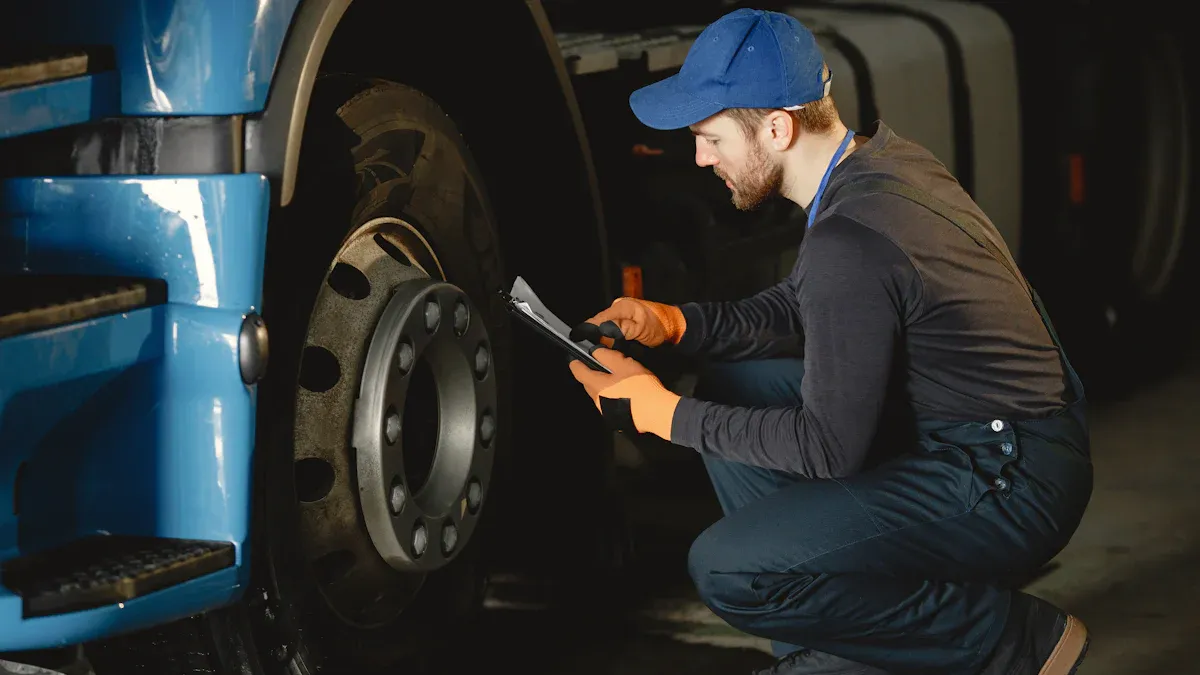
Routine Inspection Checklist
You want your truck’s valve stems to last, so regular checks are a must. Most experts recommend you inspect your commercial tires at least once a month. If you drive a lot, bring your truck in for a professional inspection every 6,000 to 8,000 miles. These steps help you catch problems before they get serious.
Here’s a simple checklist you can follow:
- Look at each valve stem and cap. Make sure they’re intact and not missing.
- Check for dents, cracks, or leaks around the valve stem.
- Inspect the core for dirt or debris that could block airflow.
- Confirm the cap fits snugly. This keeps out dust and helps prevent air leaks.
Tip: A strong maintenance plan includes tracking tire inflation pressure and tread depth over time. This keeps your tires running smoothly and safely.
Signs of Wear and When to Replace
Valve stems don’t last forever. You need to know when it’s time for a change. Watch for these warning signs:
- Persistent loss of tire pressure, even after you inflate the tire.
- Visible damage, like cracks, corrosion, or bent stems.
- Unusual vibrations in your steering wheel or if your truck pulls to one side.
If you spot any of these, replace the valve stem right away. Quick action can save you from bigger problems down the road.
Cleaning and Preventive Care
Keeping your valve stems clean helps them last longer. Use a damp cloth to wipe away dirt and dust. For stubborn grime, a toothbrush works well around the base. If you need a deeper clean, use a mild soap solution and rinse thoroughly. This prevents residue from affecting the seal.
- Clean valve stems regularly for the best performance.
- Always check for damage while cleaning.
- Replace worn-out stems quickly to keep your tires safe.
Regular cleaning and inspection help prevent leaks and keep your truck rolling without trouble.
How to Choose High-Quality Truck Tyre Valve Stems
Evaluating Brands, Certifications, and Manufacturer Reputation
When you shop for a new tire valve stem, you want to trust what you buy. Start by looking at the brand. Well-known brands often have a long history of making reliable parts. You can check if the manufacturer has important certifications like ISO9001. This shows they follow strict quality rules.
You should also see if the company tests its products before shipping. Some top brands test each valve stem up to 350% before sending it out. That means you get a part that works right from the start. If you see a brand at big auto shows or working with famous truck makers, that’s a good sign.
Here’s a quick checklist to help you pick a trustworthy brand:
- Look for ISO or SAE certifications.
- Check if the company has been in business for many years.
- Read reviews from other truck owners.
- Ask your parts supplier about their most popular brands.
Tip: A strong reputation means the company stands behind its products. You get peace of mind on every trip.
Cost vs. Quality Considerations
You might want to save money, but picking the cheapest option can cost you more later. High-quality valve stems last longer and keep your tires safe. Cheap ones may crack or leak, which leads to flat tires or even blowouts.
Think about what you need for your truck. If you drive long distances or carry heavy loads, you need a valve stem that matches your tire’s pressure rating and rim hole diameters. Spending a little more now can save you from big repair bills later.
Here’s a table to help you compare:
| Feature | Low-Cost Valve Stem | High-Quality Valve Stem |
|---|---|---|
| Lifespan | 1-2 years | 4-6 years |
| Pressure Rating | Lower | Higher |
| Material | Basic rubber | Brass/EPDM rubber |
| Risk of Leaks | Higher | Lower |
Remember: Quality parts protect your tires and your wallet. Choose wisely for safer, smoother rides.
Common Mistakes with Tire Valve Stem Selection and Care
Using Incompatible or Poor-Quality Valve Stems
You might think any valve stem will do, but using the wrong type or a cheap one can cause big problems. If you pick a tire valve stem that doesn’t match your truck’s needs, you risk air leaks and flat tires. Low-quality stems, especially those made from natural rubber, can dry out and crack in just a couple of years. This makes your tires lose air, which is dangerous when you’re driving fast or carrying heavy loads.
Here are some common issues you might face:
- Cracked or worn-out rubber lets air escape, especially after lots of sun or temperature changes.
- Leaky valve cores cause slow pressure loss, even if the stem looks fine.
- Corrosion weakens the stem and damages the seal, especially if you drive in wet or salty areas.
- Improper installation leads to poor sealing and air leaks.
- Damaged TPMS sensors from rough handling can give you false readings.
If you use a poor-quality tire valve stem, you might not notice a small leak for months. This can cause your tire to wear out faster or even fail. You could end up with belt separation inside the tire, which is costly to fix. Frequent repairs and replacements also drive up your maintenance costs.
Tip: Always choose a valve stem that matches your truck’s specs and comes from a trusted brand.
Neglecting Regular Maintenance
Skipping regular checks on your valve stems can lead to trouble down the road. You need to inspect your valve stems and caps often to make sure they aren’t damaged or leaking. If you ignore this step, you might face blowouts or sudden flats, which can be both dangerous and expensive.
Watch out for these warning signs:
- Frequent air loss in your tires.
- Visible cracks or damage on the valve stem.
- A hissing sound after you inflate your tires.
- Bubbles forming when you use soapy water on the stem.
- TPMS warning lights on your dashboard.
Regular cleaning and replacing worn valve cores help prevent leaks. If you keep your valve stems in good shape, you protect your tires and save money on repairs. Neglecting maintenance can also lower your fuel efficiency and lead to bigger repair bills.
Remember: A quick check of your tire valve stem can save you from costly problems and keep your truck rolling safely.
You want the best for your truck, so focus on truck tyre valve stems with advanced materials and high pressure ratings. Make sure they work with tire pressure monitoring systems and have strong temperature ratings. When you choose certified products from trusted brands, you boost tire longevity and keep your truck safe. Regular checks and the right fit help you avoid problems down the road.
FAQ
What materials make truck tyre valve stems last longer?
You get the best results with brass and EPDM rubber. Brass resists rust and handles high pressure. EPDM rubber stands up to heat, sun, and chemicals. These materials help your valve stems last for years, even on tough roads.
How often should you replace truck tyre valve stems?
Most experts suggest you replace valve stems every time you change your tires. If you drive in harsh conditions, check them more often. Look for cracks, leaks, or corrosion. If you spot any damage, swap them out right away.
Can you use any valve stem with a TPMS?
No, you need a valve stem that matches your TPMS. Some sensors only work with metal stems. Others need a special fit. Always check your truck’s manual or ask your parts supplier before you buy new stems.
What are signs your valve stem needs replacing?
Watch for these signs:
- Air leaks or frequent pressure loss
- Cracks or splits in the rubber
- Rust or corrosion on metal parts
- A missing or loose cap
If you notice any of these, replace your valve stem soon to avoid tire trouble.
